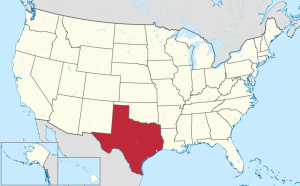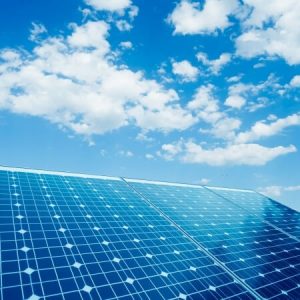 Over the last ten years, the solar power industry in Texas has evolved a lot. Texas has been ranked the fourth top state for solar power employment and seventh in terms of solar power output capacity, which is an impressive feat. It’s clear that Texas is a solar power-friendly state in terms of the industry itself, but what about homeowners? Can individuals get involved with renewable energy?
Over the last ten years, the solar power industry in Texas has evolved a lot. Texas has been ranked the fourth top state for solar power employment and seventh in terms of solar power output capacity, which is an impressive feat. It’s clear that Texas is a solar power-friendly state in terms of the industry itself, but what about homeowners? Can individuals get involved with renewable energy?
Contents
Key Takeaways
- Texas is generally a solar-power-friendly state, with homeowners now allowed to install solar panels after the closure of a loophole in 2015.
- HOAs and POAs in Texas have limited grounds to refuse consent for solar panel installations, primarily related to safety and aesthetic concerns.
- Municipalities and cooperatives (munis and co-ops) in Texas can offer competitive and stable energy prices, and the state’s abundant sunlight makes solar power an environmentally and economically sensible choice for residents.
Solar Panel Laws in Texas
For the most part, Texas is a solar-power-friendly state. However, until 2015, there was a loophole in the law that allowed property developers to block the installation of solar panels on homes in new neighborhoods. That loophole has since been closed, and now homeowners can install solar panels in Texas.
The Texas House Bill (HB)362 was originally intended to prevent Home Owners Associations and Property Owners Associations from restricting the installation of solar panels outright but required homeowners to submit a written request for planning permission to an Architecture Review Committee.
According to the Texas Property Code Section 202.010, HOAs and POAs are only permitted to refuse consent to install solar panels in some highly limited scenarios, such as:
- If the devices are illegal or would be a danger to public safety
- The planned installation would be on a common property in the subdivision
- The panels extend beyond the roofline, are not parallel to the roof, or do not follow the roofline
- If the panels are installed on the ground and extend above/beyond the fence of the owner’s property
- The installation is performed in a way that would violate the warranty
- Any element of the panel is not silver, bronze, or black in tone
- The panels were installed without approval by the HOA/POA
Senate Bill 1626 prohibits homeowners from installing solar panels during the development phase of the property complex/housing area. Some property developers used this rule as a loophole by keeping their properties “in development” for decades so that they could refuse consent for homeowners to install solar panels. This loophole was closed in 2015 when Bill 1626 was updated to state that only property developments smaller than 50 units could refuse permission for homeowners to install solar panels during the development phase. Bigger property developments are not allowed to refuse permission for solar panels.
Nonprofit Energy Companies
Munis and Co-Ops enjoy being free from the regulation that traditional energy companies are subject to. This means they are not required to participate in the same markets and can focus on their verticals. Because of this, Texans who choose to buy power from a solar nonprofit can often enjoy relatively stable and very low energy prices. Co-ops have the option of “opting in” to the competitive market, but there is no incentive to do so, and it is unusual for co-ops to choose to exercise this right.
There are some registration requirements for solar power companies in Texas. These rules relate to Distributed Generation (DG).
If a DG system generates more than 1 MW, it must be registered with ERCOT. If the system will generate more than 10MW and supply net power to the grid, then there are some additional requirements. At the time of writing, PUCT does not place specific requirements on co-ops or munis. Still, many solar power companies in Texas use PUCT commercial guidelines to guide their developments and as an example of best practice.

Why Texans Choose Solar Power
It makes environmental and economic sense for people who reside in Texas to use solar power since the state enjoys an average of 135 clear days per year, working out at around 2850 hours of sunlight per year for use in solar power generation.
Solar power is readily available, and because the solar industry in Texas is thriving, solar panels are relatively inexpensive, too. The low barrier to entry and high power return combined mean that residents will likely see rapid investment returns.
The Texas Solar Power Association is an organization that works both with homeowners and commercial property owners to advance the development of solar power generation in the state. The association comprises solar panel manufacturers, power plant developers, companies that participate in the power supply lines for residential and commercial properties, and plant developers. The association’s work includes lobbying for legal changes and incentives to encourage the adoption of solar power in the state.
According to the Texas Solar Power Association, the cost of solar panels in the state has fallen by 88% since 2009. At the time of writing, ERCOT supplies 90% of the power load for the state, with a peak supply of 78,000 MW. Using solar power domestically to reduce some of this load makes sense. For home users, standard photovoltaic panels can provide an opportunity to get off-grid for a portion of your power generation.
As of January 2020, there is no statewide grant scheme for solar power for homeowners in Texas, but some local incentives exist. Austin Energy, Oncor, and CPS Energy offer incentives for their customers. There are also rebates for solar power installations offered to homeowners in the Guadalupe Valley Electric Cooperative, Garland Power Light, and the City of Sunset Valley.
Case Study: Residential Solar Installation in Texas
Background
At Solar Panels Network USA, we pride ourselves on delivering tailored solar solutions that meet the specific needs of our clients. One of our recent projects involved a residential installation in Austin, Texas. The homeowner was eager to reduce their carbon footprint and take advantage of the state’s favorable solar panel laws and incentives.
Project Overview
The primary objective was to install a solar panel system that would significantly lower electricity bills and provide a reliable source of renewable energy. This project was designed to demonstrate how Texas’s solar-friendly regulations facilitate smooth and beneficial solar installations for homeowners.
Implementation
We began with a comprehensive site assessment to determine the optimal placement for the solar panels, taking into account the roof’s orientation, shading, and available space. The system design included high-efficiency photovoltaic panels and a robust inverter to ensure maximum energy production and conversion efficiency.
Key components of the installation included:
- Photovoltaic Panels: High-efficiency panels to capture maximum sunlight.
- Inverter: To convert DC electricity generated by the panels into AC electricity usable by the home.
- Battery Storage: To store excess energy for use during non-sunny periods or power outages.
The project implementation involved several critical steps:
- Design and Planning: We meticulously planned the system layout to comply with Texas’s solar panel laws and maximize energy production.
- Permitting and Approvals: Securing necessary permits and approvals from the local municipality and the Homeowners Association (HOA).
- Installation: Efficient installation of solar panels, inverters, and battery storage system.
- Commissioning: System checks and activation to ensure seamless operation.
Results
The installed solar panel system provided substantial electricity savings for the homeowner, covering approximately 80% of their annual energy needs. The integration of battery storage allowed for consistent energy availability, even during grid outages or non-sunny periods.
The project’s success highlighted several benefits:
- Economic Savings: Significant reduction in monthly electricity bills.
- Energy Independence: Reliable power supply and reduced dependence on the grid.
- Environmental Impact: Lower carbon footprint and contribution to cleaner energy.
The Texas solar panel laws, which limit the ability of HOAs to deny solar installations, were instrumental in facilitating this project. The legal framework ensured that the homeowner could take full advantage of the state’s abundant sunlight and the economic benefits of solar energy.
Summary
Our project in Austin, Texas, showcases the practical and financial benefits of residential solar installations under the state’s favorable laws. By leveraging these regulations and incentives, we provided the homeowner with a sustainable and cost-effective energy solution. At Solar Panels Network USA, we continue to deliver top-quality solar installations that align with the latest legal frameworks, ensuring successful and beneficial outcomes for our clients.
Expert Insights From Our Solar Panel Installers About Solar Panel Laws in Texas
The changes in Texas solar panel laws have significantly improved the landscape for homeowners. The closure of the loophole in 2015 was a game-changer, allowing more residents to take advantage of solar power.
Senior Solar Installer
Homeowners associations now have limited grounds to deny solar panel installations, primarily for safety and aesthetic reasons. This ensures that more people can contribute to and benefit from renewable energy.
Lead Installation Technician
Texas’s solar-friendly laws and abundant sunlight make it an excellent location for residential solar installations. The legal framework supports both environmental and economic benefits for homeowners.
Solar Energy Consultant
Experience Solar Excellence with Us!
Trust in Solar Panels Network USA, where our seasoned experts deliver top-quality solar solutions for homes and businesses nationwide. With a legacy of countless successful installations and a commitment to sustainable energy, we’re your reliable partner in the solar journey. Ready for a brighter, eco-friendly future? Call us now at (855) 427-0058 and harness the power of the sun!
Map image by Wikimedia Commons User: TUBS / CC-BY-SA-3.0
About the Author
Solar Panels Network USA stands at the forefront of solar energy solutions, driven by a team of seasoned solar engineers and energy consultants. With over decades of experience in delivering high-quality solar installations and maintenance, we are committed to promoting sustainable energy through customer-centric, tailored solutions. Our articles reflect this commitment, crafted collaboratively by experts to provide accurate, up-to-date insights into solar technology, ensuring our readers are well-informed and empowered in their solar energy decisions.

